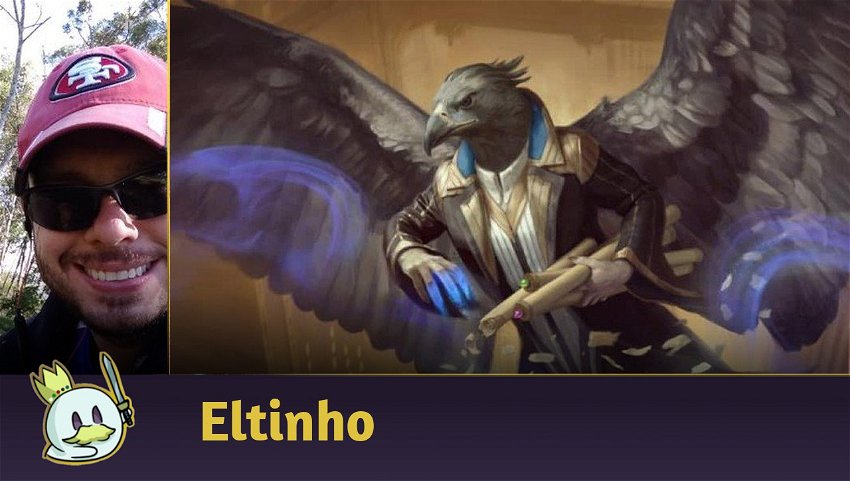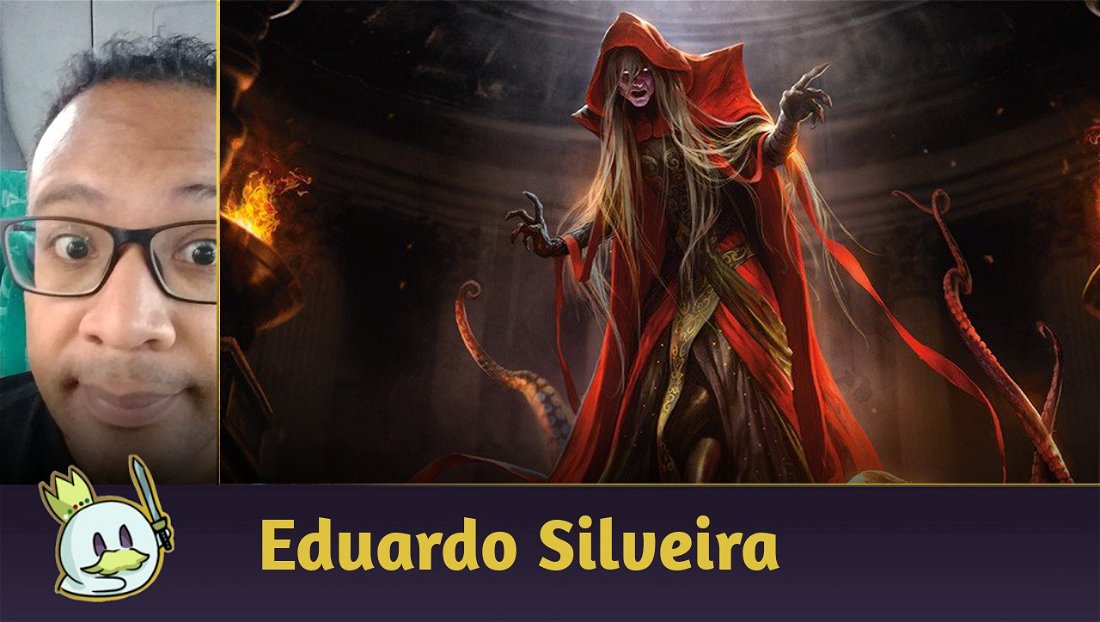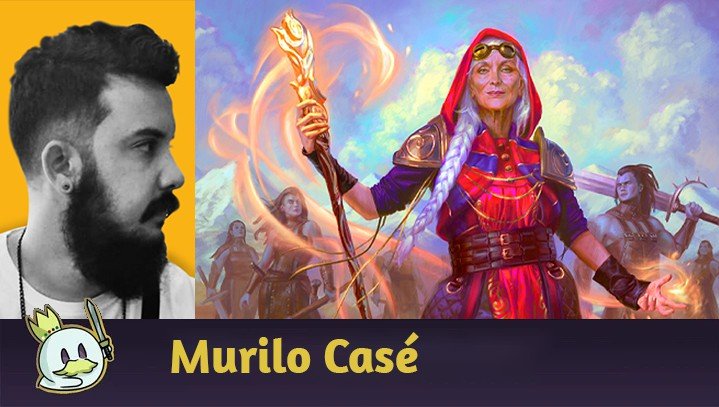Presentation
As I said in the last article, Delver of Secrets is still the king of the format, but its most famous card isn't as unanimous as it used to be. Don't get me wrong, the Delver version is the main deck in Legacy. But since Streets of New Capenna's release, a new version of the deck, more Midrange-focused and less explosive, giving up Delver in exchange for Ledger Shredder started to gain strength.
The list that I will use as a reference in the article follows below.
Ad
About the Deck
I won't spend a lot of time here talking about the original Delver, since there's no shortage of articles, lists and videos about it, but I'll focus more on the differences in this version.
The first is that it is much less focused on the Tempo plan option, Wasteland, Daze backup, but is more focused on generating value and card advantage than traditional lists. In fact, until the advent of Expressive Iteration, Delver never had an unbanned card advantage mechanism, as trading was done on a 1-to-1 basis (Brainstorm, Ponder, Lightning Bolt) or with loss of cards (Force of Will, Force of Negation), taking advantage of the Tempo conquered to pressure enough for a victory. Young Pyromancer offered an alternative through tokens.

When cutting the numbers of Tempo cards, the second difference from the new list is that it seeks to maximize the speed at which it cycles through the deck, with the addition of Mishra's Bauble and Ledger Shredder (remember that the ability also triggers on your opponent's spells as well) to the traditional 1-mana cantrips and Dragon's Rage Channeler — a card that also benefits from the presence of an artifact that goes easily to the Graveyard.

And since I mentioned card advantage, the deck allows you to recover some gas with Predict — easy to prepare with Brainstorm, Ponder, Dragon's Rage Channeler or Mishra's Bauble — or using a fetch land to find Mystic Sanctuary. This entire flow of cards allows this deck to make Murktide Regent even faster than the regular list.
Mulligan
With the high amount of cards cycling through your deck, it's perfectly fine to keep hands low on lands, but ideally, you must have quick access to Channeler or Shredder to put pressure on while preparing the graveyard for Murktide Regent .
On the draw, it is important to give preference to hands with Force of Will so as not to be surprised by strong turn 1 decks, such as some Combos or Prisons. If you have Shredder and Bauble in your starting hand, don't make the artifact on the first turn — it's better to save it for the second turn to activate the bird's ability.
Deck Building
As for deck building, it doesn't make much difference which fetch lands you use, as long as they're all blue. Some lists opt for a second Island to not be so vulnerable to Blood Moon, the adjustment can be made by cutting either a fetch or Steam Vents, although this reduces the consistency of Dragon's Rage Channeler on the first turn. Some lists also choose to increase the amount of Wasteland, either by running 19 lands or replacing a fetch.

Due to the ease with which this deck achieves Delirium, it hasn't been uncommon to find lists replacing some Lightning Bolt with Unholy Heat. The main deck's Pyroblast/Red Elemental Blast is a reaction to the high amount of blue decks in the format. As this deck can easily get rid of dead cards (Shredder, Brainstorm, Predict), the cost of using them ends up not being so great when facing decks where these cards are killed. It is also common to find lists with more Daze, Thought Scour and even Sailors' Bane doing the function of extra Murktides.
Ad
Sideboard Guide
The suggested sideboard seeks to cater to a broader Metagame, but it is not uncommon to find lists with Abrade, Court of Cunning, Court of Ire, End the Festivities, Energy Flux, Grafdigger's Cage, Hullbreacher, Izzet Staticaster, Narset, Parter of Veils, Rough//Tumble, Shattering Spree, Submerge and Vapor Snag.
UR Delver/Mirror
The game against the mirror/almost mirror is a battle of attrition, where you and the opponent spend several turns trading cards on a 1-to-1 basis, and whoever manages to force and keep a threat on the board ends up taking the game. Against lists with Delver, you have more tools to get the card advantage, but it's always important to keep Pyroblast (and the fetched recursion to Mystic Sanctuary to deal with Murktide Regent).
Post side, FoW isn't ideal in a world of attrition, and Daze ends up being easy to play around. Counterbalance if resolved will hamper your opponent's entire game flow.
IN:

OUT:

Burn
Here you have a harder time going for the race due to Delver's absence, so your goal is to hold off the opponent's threats while building a graveyard for a Murktide Regent that ends the game in a few attacks.
Also, be cautious not to overexpose yourself against Price of Progress, hold these lands in your hand or even use your Wasteland on yourself if it saves you from an extra 4 points of damage. Counterbalance can win the game by itself.
IN:

OUT:

Death and Taxes
This is a tough matchup, and you don't have anything very specific against this archetype. It's important to get an early board presence and keep Stoneforge Mystic off the board, as both Batterskull and Kaldra Compleat are extremely problematic. Thalia, Guardian of Thraben also messes up with our strategy.
IN:

OUT:

Blue Control (Grixis/Jeskai/Bant/4C)
As with past articles, the other blue control decks are grouped here. You have a harder time pressuring them without Delver of Secrets, but you are quite capable of playing a Regent quickly, and this monster ignores many removals they run.
Against Planeswalkers, you still want a certain amount of Lightning Bolt. If the game extends, Price of Progress can kill them in one go, and Maddening Hex puts too much pressure on reactive decks.
Against lists with graveyard interactions:
IN:

OUT:

Against lists with more planeswalkers:
IN:

OUT:
Ad

Red Prison
The game can be pretty tough if you don't have a counterspell, and they put in some lock on turn 1. Even Blood Moon is a huge problem.
If they're using Unlicensed Hearse, it won't be easy to activate the Channeler's Delirium or have enough fuel for the Regent's Delve. But if you solve that problem, they basically have no answers for the Dragon.
Post-side, you add more answers to Prison elements, and it is important to mulligan aggressively to find counterspells and answers.
IN:

OUT:

Oops, All Spells
Similar to the opponent above: if you don't have any counterspells in your starting hand, you'll lose. They'll have to try to force the combo with discards and Pact of Negation, but with your amount of cards cycling through the deck, you're quite likely to find backup counters.
Post-side, it's common for them to use Memory's Journey to try to play around Surgical Extraction, but a well-placed Predict can end that plan as well.
IN:

OUT:

8-Cast
Urza's Saga offers an answer to Murktide Regent through Aether Spellbomb and Chalice of the Void for 1 is brutal, but you have plenty of answers to the biggest problems they can present and cycles much faster through your deck.
Post side, you go all out after Meltdown and have Pyroblast to try to prevent Kappa Cannoneer from resolving.
IN:

OUT:

Conclusion
That's it all for today, if you have any questions, feel free to leave them in the comments!
Thanks for reading and good games!









— Comments0
Be the first to comment